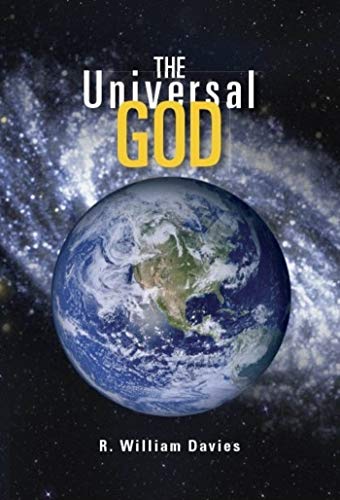God, The Universal One
Table of Contents
ToggleGod, The Universal One
Throughout human history, across cultures and civilizations, the concept of God, the universal one has captured the imagination and devotion of countless individuals. The concept of God, the universal one is one that is shared by many different religions and spiritual traditions. This idea transcends religious boundaries, presenting a vision of a singular divine entity that connects all of humanity. It is the idea that there is one supreme being who is the creator and sustainer of all that exists.
The notion of a universal God finds its roots in a multitude of religious and philosophical traditions. Monotheistic religions like Christianity, Islam, and Judaism assert the existence of a singular, all-powerful God who oversees the universe. In Hinduism, Brahman is the ultimate, unchanging reality that encompasses and permeates everything in the universe. It is often described as the source, sustainer, and essence of all existence. In Sikhism, “Ik Onkar” is a central concept found in the opening verse of the Guru Granth Sahib, the holy scripture of Sikhism. It translates to “There is only one God” and represents the belief in the oneness of the divine. Sikhism emphasizes monotheism and rejects the idea of multiple gods.
There are many different ways to understand the concept of a universal God. Some people believe that this God is a personal being who loves and cares for each individual. Others believe that God is an impersonal force or energy that pervades the universe. Still others believe that God is both personal and impersonal.
The belief that God is a personal being who loves and cares for each individual is commonly associated with several major religions and spiritual traditions. Christianity, Islam, Judaism 4. Sikhism 5. Bhakti Hinduism 6. Rastafarianism 7. Baha’i Faith.
It’s important to note that while these religions and traditions emphasize a personal relationship with a loving God, there can be variations in how this belief is understood and practiced.
The belief that God, the universal one is an impersonal force or energy that pervades the universe is often associated with several spiritual and philosophical traditions. Here are some groups that hold this belief: 1. Hinduism (Advaita Vedanta) 2. Buddhism 3. Taoism 4. Sikhism (Nirguna Brahman) 5. Jainism
It’s important to recognize that beliefs about the nature of the divine can vary within each of these traditions and may be understood differently by different individuals and communities.
Beliefs about the nature of God often encompass a wide spectrum, and there are spiritual and philosophical traditions that incorporate both personal and impersonal aspects of the divine. Here are some groups that hold a belief in a God that is both personal and impersonal: 1. Hinduism (Vishishtadvaita Vedanta) 2. Christian Mysticism 3. Sikhism (Saguna Brahman) 4. Kabbalah 5. Neo-Advaita
In these belief systems, the integration of personal and impersonal aspects of the divine allows for a more holistic understanding of spirituality, accommodating both individual experiences and the broader cosmic order.
Regardless of how one understands the concept, the idea of God, the universal one can be a source of great comfort and inspiration. It can help us to see the interconnectedness of all things and to feel a sense of belonging to something larger than ourselves. It can also give us hope and strength in times of difficulty.
There is no one right way to believe in a universal God. Each person must find their own way to connect with this divine mystery. But for those who do, the experience can be life-changing.
God, the universal one in Different Religions
The concept of a universal God can be found in many different religions, including:
-
- Hinduism: The Hindu concept of Brahman is often seen as a universal God. Brahman is the ultimate reality, the ground of all being. It is beyond all names and forms, and cannot be fully comprehended by the human mind.
-
- Buddhism: The Buddhist concept of emptiness (shunyata) is sometimes seen as a form of universal God. Emptiness is not nothingness, but rather the absence of inherent existence. All things are empty of self, and are therefore interconnected.
-
- Taoism: The Taoist concept of the Tao is often seen as a universal God. The Tao is the way of the universe, the underlying principle of all things. It is beyond all dualities, such as good and evil, and cannot be fully grasped by the human mind.
-
- Judaism: The Jewish concept of God is often seen as a universal God. God is the creator and sustainer of the universe, and is the source of all goodness and love.
-
- Christianity: The Christian concept of God is also often seen as a universal God. God is the Father, Son, and Holy Spirit, and is the creator and redeemer of the world.
-
- Islam: The Islamic concept of Allah is also often seen as a universal God. Allah is the one and only God, and is the creator and sustainer of the universe.
These are just a few examples of how the concept of a universal God can be found in different religions. Ultimately, the meaning of this concept is up to each individual to decide.
God, the universal one and Interfaith Dialogue
The concept of God, the universal one can be a powerful force for interfaith dialogue. When people from different religions can agree on the existence of a single, divine reality, it can help to break down barriers and promote understanding.
Interfaith dialogue is important because it can help us to learn from each other and to grow in our understanding of God. It can also help us to work together to address the challenges facing our world.
The concept of God, the universal one often serves as a unifying force that transcends cultural and religious differences. It provides a common ground for dialogue and understanding among diverse communities. In a world where conflicts fueled by religious divisions persist, the idea of a universal God emphasizes shared values of love, compassion, and interconnectedness.
Moreover, the belief in God, the universal one encourages individuals to look beyond their own immediate surroundings and empathize with the experiences of people from different walks of life. This can foster a sense of global citizenship and promote cooperation in addressing pressing issues such as environmental sustainability, poverty, and social justice.
Human beings have an innate desire to seek meaning and purpose in their lives. The concept of God, the universal one offers a framework for understanding our place in the cosmos and our role in the grand tapestry of existence. Believing in a higher power that orchestrates the universe can provide solace during times of adversity and inspire a sense of hope and resilience.
For some, the idea of God, the universal one provides a moral compass, guiding ethical decisions and promoting virtues such as honesty, kindness, and justice. It can offer a sense of accountability to a higher authority, encouraging individuals to strive for personal growth and contribute positively to the world.
While the concept of a universal God offers many benefits, it also raises profound questions and challenges. Skeptics might question the existence of such a deity, citing the diversity of religious beliefs and the absence of empirical evidence. Additionally, discussions around the nature of God, the problem of evil, and the relationship between the divine and human agency remain topics of deep contemplation.
The world’s religions have diverse sets of beliefs, practices, and texts that hold spiritual significance for their followers. Here are some of the major world religions and their corresponding holy books:
-
- Christianity: The Bible is the holy book of Christianity, consisting of the Old Testament and the New Testament. The Old Testament contains texts shared with Judaism, while the New Testament focuses on the life, teachings, death, and resurrection of Jesus Christ, as well as the early Christian community. Originated in the region of Judea (modern-day Israel and Palestine) approximately 2,000 years old (1st century AD).
- Islam: The Quran is the holy book of Islam, believed by Muslims to be the literal word of God as revealed to the Prophet Muhammad. It serves as a comprehensive guide for faith, practice, and daily life. Originated in the Arabian Peninsula, specifically in the city of Mecca, approximately 1,400 years old (7th century AD).
- Judaism: The Tanakh, also known as the Hebrew Bible, is the central religious text of Judaism. It includes the Torah (Law), Nevi’im (Prophets), and Ketuvim (Writings), containing historical narratives, laws, prophecies, poetry, and wisdom literature. Originated in ancient Israel, with historical roots in the region of Canaan (modern-day Israel and Palestine). Judaism is one of the oldest religions in the world, with its roots dating back to the 2nd millennium BCE. The exact age of Judaism is difficult to determine, as there is no single event that marks its beginning.
- Hinduism: Hinduism does not have a single holy book like other religions. Instead, it has a vast collection of texts that vary in scope and significance. Some of the important texts include the Vedas, Upanishads, Bhagavad Gita, Ramayana, and Mahabharata. Originated in the Indian subcontinent, with ancient cultural and religious developments in the Indus Valley and other regions. Hinduism is one of the oldest religions in the world, with its roots dating back to at least 5,000 years ago.
- Buddhism: Buddhists follow various texts depending on the specific branch of Buddhism. The Tripitaka (Pali Canon) is a foundational collection of scriptures in Theravada Buddhism. Mahayana Buddhism has additional texts, including the Mahayana Sutras. Originated in ancient India, with its founder Siddhartha Gautama (Buddha) having lived in the Indian subcontinent, approximately 2,500 years old (5th century BC).
- Sikhism: The Guru Granth Sahib is the holy scripture of Sikhism. It is considered the eternal Guru by Sikhs and contains hymns and writings by Sikh Gurus and other saints. Originated in the Punjab region of the Indian subcontinent, in the late 15th century, approximately 500 years old (late 15th century AD)
- Jainism: The Jain scriptures are called Agamas. These texts contain teachings and doctrines of Jainism, including principles of non-violence, truth, and self-discipline. Originated in ancient India, with Mahavira being one of its key historical figures. Jainism is one of the oldest religions in the world, with its origins dating back to at least the 6th century BCE
- Confucianism: While not a traditional religion in the same sense as others on this list, Confucianism has texts like the Analects of Confucius, which contain teachings on ethics, morality, and governance. Originated in ancient China, with Confucius (Kong Fuzi) being its central figure. Approximately 2,500 years old (6th to 5th century BC).
- Taoism: Tao Te Ching, attributed to Laozi, is a foundational text in Taoism. It offers insights into the nature of the Tao (the Way) and provides guidance for living in harmony with it. Originated in ancient China, with Laozi being associated with the foundational text, the Tao Te Ching. Approximately 2,500 years old (6th to 4th century BC).
- Zoroastrianism: The Avesta is the primary collection of texts in Zoroastrianism. It includes hymns, rituals, and teachings attributed to the prophet Zoroaster (Zarathustra). Originated in ancient Persia (modern-day Iran), with Zoroaster (Zarathustra) as its founder. One of the world’s oldest known monotheistic religions, with origins dating back to the 6th century BC or earlier.
- Bahá’í Faith: The Kitáb-i-Aqdas and the Kitáb-i-Íqán are two of the central texts in the Bahá’í Faith, which emphasize the unity of religions and the oneness of humanity. Originated in Persia (modern-day Iran) approximately 200 years old (19th century AD).
- Shintoism: Shintoism doesn’t have a single holy book, but its beliefs and practices are based on various myths, legends, and historical records known as the Kojiki and Nihon Shoki. Originated in Japan and is deeply intertwined with Japanese culture and history. Although historians debate the point at which it is suitable to begin referring to Shinto as a distinct religion, kami veneration has been traced back to Japan’s Yayoi period (300 BCE to 300 CE).
- Sumerian Religion: The Sumerians had a collection of religious texts known as the “Atrahasis,” which includes creation myths and stories about gods and humans. Originated in ancient Sumer, a region in Mesopotamia (modern-day southern Iraq). Sumerian religion is the oldest known religion in the world, with its roots dating back to the 4th millennium BCE. The earliest historical records only date to around 2900 BCE, but it is believed that Sumerian religion developed over a long period of time.
- Ancient Egyptian Religion: The Book of the Dead, also known as the “Papyrus of Ani,” is a collection of spells, prayers, and rituals meant to guide the deceased through the afterlife. Originated in ancient Egypt along the Nile River. Ancient Egyptian religion is the oldest recorded religion in the world, with its roots dating back to the Predynastic Period of Egypt (c. 6000-3100 BCE).
- Native American Spirituality: Indigenous tribes across the Americas have diverse oral traditions, myths, and ceremonies that guide their spiritual practices. Originated among indigenous peoples of North America, Central America, South America, and the Arctic. It is generally agreed that it has been practiced for at least 15,000 years.
- African Traditional Religions: Various African cultures have their own oral traditions, myths, and rituals that are central to their spiritual beliefs and practices. Originated across various regions in Africa, among diverse indigenous cultures. It is generally agreed that it has been practiced for at least 10,000 years.
- Sufism: Sufi Islam places emphasis on spiritual experiences and the internalization of faith. While not a distinct holy book, Sufis often draw inspiration from the Quran and Hadith and various Sufi writings. A mystical aspect of Islam that emerged within the Islamic world, particularly in the early centuries of Islam. Emerged within the early centuries of Islam (7th to 9th centuries AD).
- Rastafarianism: Rastafarians regard the Bible as a sacred text, with a particular focus on the Old Testament and the prophetic messages it contains. Originated in Jamaica in the early 20th century. Approximately 100 years old (early 20th century).
- Wicca and Modern Paganism: These traditions have a wide range of texts, including books of shadows, which contain rituals, spells, and teachings unique to individual practitioners. Modern Paganism is a revival of ancient pagan beliefs and practices, with diverse origins and influences from around the world, that gained momentum in the mid-20th century, inspired by ancient pagan traditions.
- Cao Dai: The primary religious text of Cao Dai, a syncretistic religion from Vietnam, is the “Thanh Hưng Thượng Quan Sứ Quân” (The Collection of Divine Messages). Originated in Vietnam approximately 100 years old (early 20th century).
- Eckankar: The “Shariyat-Ki-Sugmad” is a series of books considered sacred in Eckankar, a new religious movement focusing on spiritual experiences and self-realization. Originated in the United States approximately 60 years old (mid-20th century).
- Scientology: The central text of Scientology is “Dianetics: The Modern Science of Mental Health” by L. Ron Hubbard, which outlines principles and practices for self-improvement. Originated in the United States approximately 70 years old (mid-20th century).
- Juche: The “Juche Idea” serves as the guiding ideology of North Korea. While not a religious text, it emphasizes self-reliance and the centrality of the individual to the nation. Originated in North Korea approximately 70 years old (mid-20th century).
- Spiritism: “The Spirits’ Book” by Allan Kardec is a foundational text in Spiritism, a spiritualist movement that seeks to communicate with spirits and understand the nature of the afterlife. Originated in Europe in the 19th century, with Allan Kardec being a prominent figure.
- Yoruba Religion (Santería, Candomblé, etc.): These Afro-Caribbean and Afro-Brazilian religions have various texts and oral traditions that guide their rituals, divination, and worship of deities. Originated among the Yoruba people in West Africa and the African diaspora, particularly in the Americas. The religion is believed to have been around for at least 1,500 years.
This list illustrates the incredible diversity of religious beliefs and practices around the world, each with its own sacred texts, teachings, and spiritual insights.
The concept of a universal God transcends religious, cultural, and philosophical boundaries, representing a vision of unity and interconnectedness that resonates with the human spirit. Whether through traditional religions, philosophical musings, or secular perspectives, the belief in a higher power that unifies all of existence persists. This idea encourages dialogue, fosters compassion, and ignites the pursuit of meaning and purpose. As humanity continues to evolve, the exploration of a universal God remains an enduring journey into the depths of our shared spirituality and collective consciousness.
Current scenario
The concept of God, the universal one continues to be a topic of interest and discussion in various religious, philosophical, and spiritual circles. However, it’s important to note that beliefs and perspectives on this matter can vary greatly among individuals and communities, and the current scenario might have evolved since then.
The belief in God, the universal one has been expressed in many different ways across different religious and philosophical traditions. Monotheistic faiths, such as Christianity, Islam, and Judaism, believe in a single, all-encompassing deity. Other belief systems, such as Hinduism and Buddhism, emphasize different understandings of the divine.
In recent years, there has been a growing interest in interfaith dialogue. These dialogues seek to foster understanding and cooperation among people of different religious backgrounds, including discussions about their respective beliefs in a universal God.
The modern era has also seen an increase in spiritual pluralism, where individuals draw from multiple religious or philosophical sources to form their own unique beliefs. This can lead to varied interpretations of the concept of a universal God.
In addition to religious beliefs, there are secular perspectives that view the universe and its interconnectedness as a kind of “secular spirituality.” These perspectives may not involve a traditional deity but still emphasize the unity of all existence.
Discussions about the nature of the universe often intersect with scientific exploration. Some individuals seek to bridge scientific understanding with spiritual beliefs, looking for connections between the physical world and broader metaphysical concepts.
The concept of God, the universal one is not without challenges and debates. Skepticism about the existence of a higher power, theological debates within and between religious traditions, and the influence of atheistic and agnostic viewpoints contribute to ongoing discussions about the nature of the divine.
Beliefs about God, the universal one have personal implications for how individuals perceive their purpose, meaning, and values. They also have broader global implications in shaping cultural norms, ethical standards, and interactions between diverse communities.
Here are some specific examples of how the belief in God – the universal one has been expressed in different religious and philosophical traditions:
- In Christianity, God is often referred to as the “Father,” the “Creator,” and the “Lord.” Christians believe that God is all-powerful, all-knowing, and all-loving.
- In Islam, God is called Allah. Muslims believe that Allah is the only God and that Muhammad is his prophet.
- In Judaism, God is called Yahweh. Jews believe that God is the creator of the universe and that he has a special relationship with the Jewish people.
- In Hinduism, there are many different gods and goddesses, but they are all considered to be aspects of the same divine reality.
- In Buddhism, there is no belief in a personal God. However, Buddhists believe in the concept of “Buddha nature,” which is the potential for enlightenment that exists in all beings.
These are just a few examples of the many different ways that the belief in a universal God has been expressed. The concept of a universal God is a complex and multifaceted one, and it continues to be debated and discussed by people of all faiths and backgrounds.
You may also be interested in other article on Christianity – a major world religion






